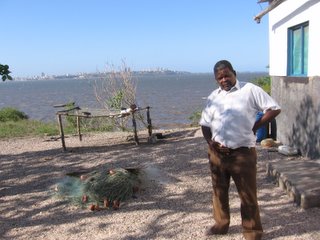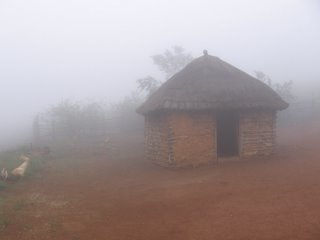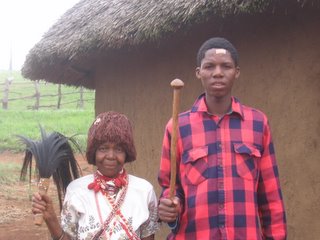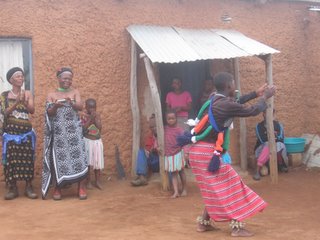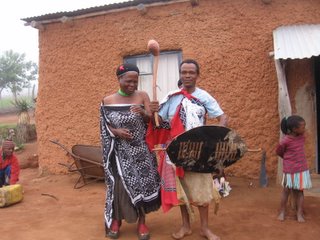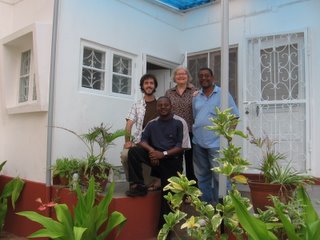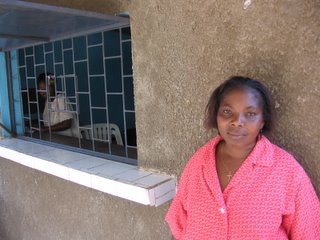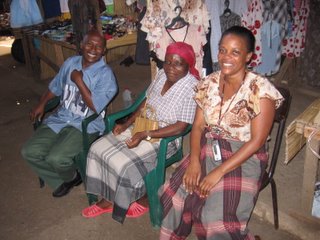Highs and Lows on the Microphone
Last weekend I had the opportunity to participate in the GIPA conference held here in Mozambique. GIPA is a UN initiative for the greater involvement of people living with HIV/AIDS (PLWHA) in the worldwide fight against the disease. This was Mozambique’s third GIPA conference since 1994 and gathered all of the country’s associations of PLWHA for a four day workshop here in Maputo. The event was sponsored by UNICEF, UNDP, CIDA, the Mozambican Ministry of Heath and the National Department of HIV/AIDS Programming. It was organized by RENSIDA, an organization that I’ve been in communication with that coordinates the numerous associations of PLWHA working throughout the country. The previous week that had asked me to make a presentation on getting PLWHA more involved in microfinance and I jumped at the opportunity. It was an honour for me to be slated in on the forth day of the conference between NGO directors and government ministers.
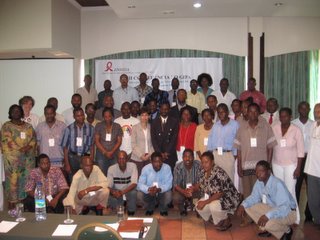
I prepared a presentation that highlighted the work of MMF, described the challenges of HIV/AIDS in microfinance operations, recommended future courses of action for MFIs and associations of PLWHA and gave the participants of list of MFIs to speak with about microfinancing. The crux of the my presentation was that microfinance could provide the capital needed to help PLWHA develop the income generating activities that would provide them with a longer, healthier and more satisfying life. Unfortunately, the type of presentation I gave was not entirely what the participants wanted to hear. They were attending this conference, in large part, to find out how they could best apply and receive government grants, or outside donations, for their operations. They did not want to hear about microloans and the impacts of HIV/AIDS on MFIs. Also, while I had translated my power point slides into Portuguese, I still delivered my presentation through a translator in English. As a result, some important information was lost in the translation. The participants kept thinking that MMF provided direct financing to associations despite my repeated efforts to explain that MMF only provided technical assistance to MFIs. Some of the participants became rather frustrated with my lack of ability to tell them how they could be approved for financing. I even had one of the association directors stand up and say that unless I could provide them with this information I should kindly get off the stage. Ouch.
So, all in all, the conference was both a good and a bad experience for me. It was a fantastic opportunity for me to present my case and meet the people at the forefront of the fight against HIV/AIDS in this country. It also was gave MMF some beneficial publicity within the HIV/AIDS community in Mozambique. I can definitely say that the communication between RENSIDA and myself should have been a lot better in terms of what I was expected to present on and what I participants would be expecting to hear. I also probably made the mistake of delivering a presentation geared towards a North American audience to an African audience that has heard about the negative impacts of HIV/AIDS about a thousand and one times. Ultimately, our organization was not the right fit for this conference as so much of the HIV/AIDS work in this country remains dependant on government handouts and international donations. It seems as if these HIV/AIDS associations have a long way to go before they are ready for the conditions attached to microfinance. I find this unfortunate as I believe that their businesses can and should work with MFIs like any other microenterprise in a developing community. Development assistance provides much needed relief in certain situations but it’s the culture of dependence on this assistance that is often the unfortunate side effect. My experience this last week gave me some real insight into this matter.


